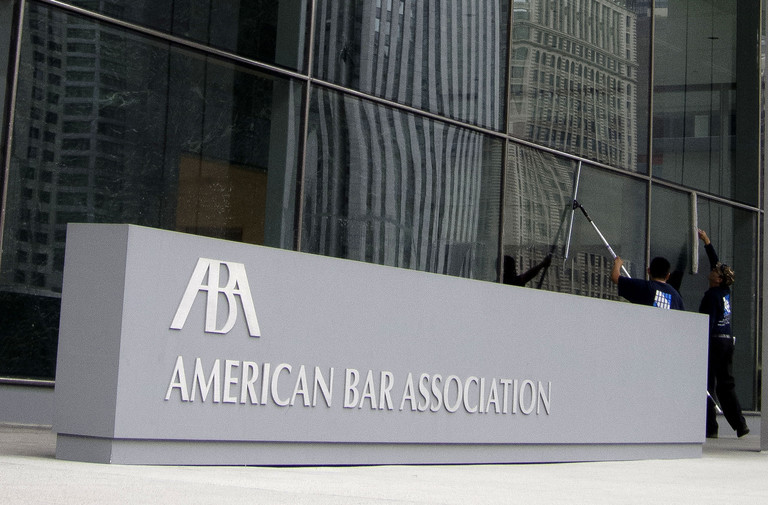ABA Pauses Vote on Controversial Experiential Learning Proposal Amid Fierce Opposition
August 24, 2025
CHICAGO – The American Bar Association’s (ABA) Council of the Section of Legal Education and Admissions to the Bar has delayed a vote on a contentious proposal to double the required experiential learning credits for law school accreditation from six to twelve, following significant pushback from law school deans and faculty. The decision, made during the council’s quarterly meeting on August 22, 2025, in Chicago, reflects concerns over costs, curricular control, and the lack of evidence supporting the proposed changes.
Proposal Details and Initial Push
The proposal, first introduced in May 2025, aimed to revise ABA accreditation Standards 303, 304, and 311 to require law students to complete twelve credits of hands-on learning, including at least three credits in a clinic or field placement involving real client representation. The Standards Committee, chaired by Carla D. Pratt, argued that the change would better prepare graduates for practice, aligning legal education with other professions like medicine and dentistry, which require more extensive experiential training. The original plan set a compliance deadline of 2030, but a revised version released on August 15 extended this to 2032 and allowed three credits to be earned in the first year of law school.
Proponents, including the Clinical Legal Education Association and Professor Emerita Deborah Jones Merritt of Ohio State University, emphasized that the increase would ensure law graduates are “practice-ready.” Merritt, a 2025 ABA Journal Legal Rebel, argued, “It is very hard to argue that a school conferring JD degrees based on less than 12 upper-level credits in experiential courses is offering a minimally qualified program of professional education.”
Widespread Opposition
Despite these arguments, the proposal faced fierce resistance, with 343 pages of public comments, the majority opposing the change, submitted during a 45-day comment period ending June 30, 2025. A letter signed by 52 deans from prestigious institutions, including Yale, NYU, and UC Berkeley, urged the ABA to slow down and adopt incremental changes, citing financial strains on law schools and challenges for part-time students who balance work and studies. Critics, such as Northwestern Pritzker School of Law professor Daniel Rodriguez, highlighted the lack of empirical evidence showing that doubling experiential credits would improve bar passage rates or employment outcomes. A recent study by Chilton, Joy, and Rozema, shared on X, found no significant improvement in these metrics following the ABA’s 2014 increase to six credits.
Opponents also raised concerns about the high costs of expanding clinics and externships, which require low student-to-faculty ratios compared to lecture-based courses. Former Georgetown Law Dean William Treanor noted that his school would need to add eight new clinics or seventeen externship seminars to comply, despite many graduates already meeting the proposed requirement. Additionally, part-time students, who often take evening classes while working, could face significant barriers.
Revised Proposal and Ongoing Debate
The revised proposal attempted to address some criticisms by offering more flexibility in credit options and delaying implementation to 2032. However, critics like Rodriguez argued that these concessions were insufficient, accusing the ABA of “top-down micro-management” and overreach in dictating curriculum. Some, including Indiana University professor Gerard Magliocca, even suggested that the ABA’s role as the sole accreditor of U.S. law schools, recognized by the Department of Education, should be reconsidered. Ohio, Texas, and Florida are already exploring alternative accreditation models.
Decision to Pause
The council’s decision to table the vote was influenced by the recent addition of new members, prompting a need for further discussion. “The motion to withdraw the proposal gives the committee time to discuss with our newly constituted members how we got to where we are, as well as whether we want to make any additional changes,” Pratt said during the meeting. The pause allows the council to review the extensive feedback and consider whether to proceed with a new round of public comments or modify the proposal further.
Broader Implications
The debate underscores broader tensions over the ABA’s role in shaping legal education. While supporters argue that experiential learning is critical for producing competent lawyers, especially with the upcoming NextGen Bar Exam emphasizing practical skills, critics warn that the mandate could stifle innovation and strain resources. Posts on X reflect ongoing skepticism, with users like @WilliamBaude citing the lack of counter-evidence from the ABA to justify the changes. The council’s next steps, expected to be discussed in future meetings, could reshape legal education for years to come.
As the ABA navigates this contentious issue, the pause offers a moment for reflection, but the path forward remains uncertain. The council’s final decision, potentially subject to another comment period, will likely face scrutiny from both supporters and detractors in the legal education community.
